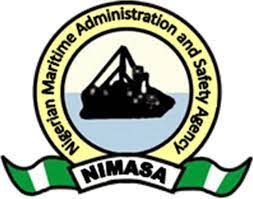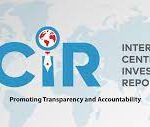From Anthony Nwachukwu, Lagos
Satisfied with Nigeria’s efforts at curtailing piracy and maritime criminalities, and its progress in the quest for security in the Gulf of Guinea, the International Maritime Bureau (IMB) has removed the country from its list of piracy hotspots, the Director-General, Nigerian Maritime Administration and Safety Agency (NIMASA), Dr. Bashir Jamoh, has said.
Jamoh, who disclosed that this happened earlier this month, commended the judiciary for their role in achieving the feat and called for more collaboration from them and other stakeholders to enable the country improve its recent successes in maritime security infrastructure, as well as the legal background against piracy and other maritime crimes.
In his welcome address to eminent jurists and distinguished experts at the 2nd Nigerian Admiralty Law Colloquium in Lagos, Jamoh stated that for the agency to keep sailing, both with and against the winds till it gets to its desired destination of maritime security, safety and shipping development, “the cooperation and support of the judiciary is crucial.
Speaking on the theme of the colloquium, “Maritime Safety, Security and Shipping Development: Reflections and the Way Forward,” he said “it is imperative that all hands are on deck to ensure the success of Tripod “S” as its benefits to the nation cannot be overstated.”
He added that to maximise the nation’s maritime resources to facilitate development, the bills on NIMASA Act and other laws that also govern the “Tripod S” such as Merchant Shipping Act and Cabotage Act have been amended and were presently before the National Assembly in line with current realities and international best practices.
“The theme of this year’s colloquium requires collaboration, cooperation, coordination and communication. It calls for general participation, for in togetherness we can gain efficiency, rationalise, join forces and create economies of scale that will make Nigeria more visible, credible and resourceful.
“Hence, we can safeguard our interests and value cooperatively with our international partners to make Nigerian maritime space attractive to foreign investors. This forum presents another opportunity for reviewing the steps so far taken with a view to achieving a more comprehensive policy for adjudicating admiralty conflicts.”
He commended the judiciary for the recorded convictions of criminals and their sentencing since 2021, which he said has sent a clear message to all would-be practitioners of piracy and sea criminality that Nigerian waters will never again be a safe haven for them, for “they now know that if they do the crime they will serve the time.”
These victories in the courts have rippled across the waters to help reduce piracy to a 27-year low. Additionally, Nigeria has become the judicial benchmark for the entire Gulf of Guinea in admiralty matters as other member-countries are now using the SPOMO Act as their model.
Meanwhile, the Nigerian Institute of Advanced Legal Studies (NIALS) noted that the choice of this year’s theme “was necessitated by the obvious fact that in February 2020 we x-rayed the first stand-alone anti-sea piracy and maritime crimes law in the entire Gulf of Guinea (Nigeria’s 2019 Suppression of Piracy and Other Maritime Offenses Act – SPOMO Act).”
NIALS Director-General, Prof. Muhammed Ladan, stated: “We identified the loopholes in the infant law and concluded that despite its teething problems, it remained a vital tool for accelerating and achieving safe and secure shipping in Nigeria.
“In April 2021, the maiden colloquium explored the critical role of the judiciary and law enforcement agencies in achieving NIMASA’s Tripod-S initiative (Maritime Safety, Security and Shipping Development) within its Deep Blue project in Nigeria and the Gulf of Guinea, and concluded that, unless member-states step up prosecution efforts and bring suspected pirates to justice, the region will remain the world’s piracy hotspot.”
Citing the IMB’s report on continuous reduction in reported cases, Ladan stated that compared to 2020, 2021 was much better for both Nigeria and the Gulf of Guinea as well as the global maritime community in dealing with piracy and other maritime crimes, with the numbers dropping to seven attacks and 20 kidnapping in Q4 of 2021- the lowest.
He noted: “The region recorded 34 incidents of maritime piracy and armed robbery at sea in 2021, a sharp drop from 81 in 2020, and while kidnappings at sea dropped by 55 per cent in 2021, the region continues to account for all kidnapping incidents globally, with 57 crew taken in seven separate incidents.
“The decline of piracy incidents in the Gulf of Guinea also led to the overall global reduction in reported incidents in 2021, with 132 incidents of piracy and armed robbery against ships across the globe, the lowest recorded level since 1994.
“However, the Gulf of Guinea which remains the world’s privacy hotspot, is home to Nigeria, whose economy generates over 70 per cent of the seaborne trade in West Africa and Gulf of Guinea because about 90 per cent of global trade is carried out by the international shipping industry for import/export of goods.”
Going forward, “through this strategic colloquium, we wish to enhance the capacity of, and remind our justice sector actors that we will all prosper when the seas around us are safe, secure and free for all to use and exploit natural resources, promote trade and investment, tourism, marine science and technology, maritime transport and infrastructure development to sustain fisheries and protection of the marine environment.
“Through this colloquium we hope to build greater understanding of the common challenges of maritime safety and security and how SPOMO Act 2019 seeks to promote synergy among the justice sector.”



